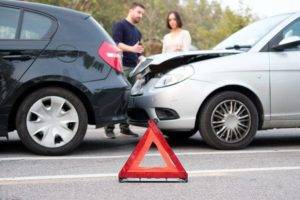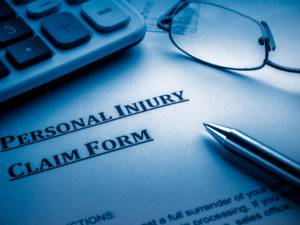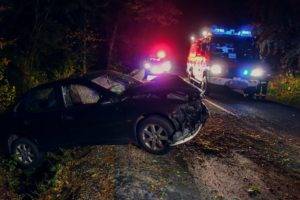Depending on several of factors, the average car accident settlement in Florida can range anywhere from $10,000 to $60,000 or even higher.
Based on the severity of your injuries and damages, you can request a higher settlement amount.
Average Florida Car Accident Settlement
The average car accident settlement in Florida is around $24,000, but many victims recovered under $10,000 in their settlements over the past few years.
Need free legal help in Florida?
We specialize in personal injury claims.

What Kind of Financial Compensation Can You Recover After a Florida Car Accident?
If you get into a car accident in Florida, there are various damages you can claim when seeking financial compensation. Those include economic and noneconomic damages. In some cases, punitive damages may be awarded as well.
What Are Florida’s Car Accident Laws?
Florida law requires all drivers to remain at the scene of a car accident regardless of who is at fault. If a driver flees, they could end up facing hit-and-run charges if they are tracked down. The police must be called to the scene if an accident causes personal injuries or death or if there is property damage amounting to $500 or more.
No-Fault Car Accident Laws in Florida
Florida follows the no-fault system for car accidents. That means that all drivers are required to carry auto insurance with personal injury protection (PIP) coverage in the event that they are involved in an accident and suffer injuries. PIP covers the costs of medical expenses even if you are at fault for the accident.
What to Expect with Florida Car Accidents
Florida also follows the comparative negligence theory, which means if you’re deemed a certain percentage responsible for a car accident, you can still recover compensation for your damages. For example, if you were traveling a few miles per hour over the speed limit and the other driver was distracted when you got into a collision, you might be found to be 10% at fault. Thus, if your damages came to $10,000 and you sought that amount in compensation, if your claim ended up successful, you would recover 90% or $9,000 in your settlement.
In certain situations, you can file a lawsuit against the at-fault driver instead of going through your auto insurance. The statute of limitations for filing a car accident lawsuit is four years from the date of the incident or from the date your injuries became apparent.
What Happens When a Car Accident Only Involves Injuries?
Some car accidents may only result in personal injury. In that situation, unless your injuries are severe and exceed the limit allowed by your insurance, you would go through your PIP coverage. If your PIP isn’t sufficient to cover these costs, you would have to file a lawsuit directly against the other driver.
What Happens When a Car Accident Only Involves Property Damage?
If a car accident only involves property damage, you can go through your auto insurance policy to compensate you for the out-of-pocket expenses to repair your vehicle. Property damage liability (PDL) can cover these costs.
Understanding the Insurance Company’s Involvement
After a car accident, when you file a claim with your insurance company, it’s often necessary to speak with a claims adjuster. However, it’s in your best interest to have your car accident attorney do this; speaking with the adjuster yourself can work against you because insurers often aim to give claimants as low a settlement as possible.
The Importance of Knowing What Your Insurance Policy Includes
It’s crucial to know what’s included in your auto insurance policy because you want to ensure that you can be covered in every way possible. You might be left injured or with property damage or deal with a combination of both. Florida doesn’t require bodily injury liability (BIL) coverage but does require all drivers to carry at least $10,000 in PIP and PDL coverage. However, if your damages exceed your coverage, you would have to pay out-of-pocket to cover the remaining expenses.
What Is Included in Your Insurance Coverage and What is Permissible?
In addition to PIP and PDL coverage, it’s also wise to carry BIL because it protects you in the event that you suffer a serious injury in a car accident. Florida insurance carriers also advise drivers to carry uninsured/underinsured motorist coverage just in case they’re involved in a hit-and-run accident or a collision with an uninsured or underinsured driver.
Your Auto Insurance Follows Your Vehicle
Your auto insurance policy follows your vehicle, not the driver. This means that regardless of whether you or someone else is driving your vehicle at the time it gets into a car accident, your insurance will only cover anyone who is listed on your policy. Usually, this includes your spouse, child or a parent depending on the age of these family members and your closeness.
What Are the Exceptions to This Rule?
An exception to the rule of auto insurance following the vehicle is PIP coverage. This aspect of your insurance policy follows the driver instead of the vehicle.
How Is Fault Investigated and How Are Payment Amounts Determined?
Although Florida follows no-fault rules in car accident cases, the state also uses the comparative negligence law. As a result, some accidents are investigated to determine the level of fault of each party. This is to help determine how much money the plaintiff can recover if they choose to file a lawsuit against the other driver. By law, a driver is entitled to recover compensation for their damages even if they are found to be 99% at fault for a car accident.
Payment amounts are determined based on the plaintiff’s level of fault for the accident. In other words, if the plaintiff is suing for $10,000 and is found to be 20% at fault for the collision, they would only recover $8,000 in their settlement if their case is successful.
Personal Injury Protection Coverage Requirement
Personal injury protection (PIP) coverage is required in Florida at a minimum of $10,000 in each driver’s auto insurance policy. This coverage is in place to protect you if you are in a car accident and sustain injuries.
Understanding PIP Coverage
PIP coverage is part of auto insurance that covers medical expenses, lost wages and other out-of-pocket damages suffered after a car accident. It kicks in regardless of who is at fault for the accident. The policyholder and anyone added to their plan such as immediate family members who live with them are covered.
How PIP Provides Benefits
PIP provides benefits for medical expenses and lost wages after a car accident. These benefits kick in immediately after you have suffered injuries in an accident and have to miss time from work to recover. As such, they can also pay for lost wages and other out-of-pocket expenses incurred directly due to your injuries. For example, if you need help getting around and have to hire a home health aide while you recuperate, PIP should compensate you for the costs you pay to the aide.
How Does Property Damage Liability Coverage Work?
Property damage liability (PDL) coverage covers the costs of damages to a person’s vehicle after a car accident. In Florida, you must carry this coverage at a minimum of $10,000. However, this coverage is meant to pay for the damages to another driver’s vehicle.
How to Determine Liability for Property Damage and How Much is Covered By Insurance
Although Florida is a no-fault car accident state, fault must be established in situations of property damage. The evidence you collect for your car accident claim can help show that the other driver is at fault for the accident. However, if you share some of the fault per the comparative negligence law, you can recover compensation minus the percentage of fault you are found to be for the accident.
What Are Your Personal Injury Lawsuit Considerations?
When filing a personal injury lawsuit after a car accident in Florida, there are certain considerations. As the state follows no-fault laws, you can only file a lawsuit if you sustain injuries serious enough to exceed auto insurance policy limits.
Another consideration when filing a lawsuit is your potential level of responsibility for the car accident. This involves the comparative negligence rule, which can sometimes be complex.
When Should You Seek Help from a Personal Injury Attorney?
There are different scenarios that warrant seeking help from a personal injury attorney when you have to file a lawsuit. Your lawyer can help establish your level of fault through the comparative negligence rule and determine how much money you might recover in your settlement if your case is successful. They can also ensure that your personal injury lawsuit is filed within a timely manner to comply with the statute of limitations and present the evidence needed in your case to strengthen your claim.
Understanding No-Fault States and Laws That Affect Accident Victims
In addition to Florida, 17 other states follow no-fault car accident laws: Arkansas, Delaware, Hawaii, Kansas, Kentucky, Maryland, Massachusetts, Michigan, Minnesota, New Jersey, New York, North Dakota, Oregon, Pennsylvania, Texas, Utah and Washington. However, Kentucky, New Jersey and Pennsylvania give drivers the option of filing a no-fault or fault claim.
What Should You Do After a Car Accident?
There are certain immediate steps to take after a car accident. After checking yourself and your passengers for injuries, you must call 911. Exchanging information and locating witnesses, seeking medical attention, gathering evidence and notifying your insurance company are essential if you plan on filing a claim.
Call 911 for the Police and Emergency Medical Personnel
One of the first things to do after an accident is to call 911 to get police and an ambulance with EMTs to the scene. Notifying the police is the law after an accident involving $500 in damages or when someone has suffered injuries or died.
Filing a Police Accident Report
A police officer who responds to the car accident can take an accident report. You can get their name and badge number and ask how to obtain a copy of the report for your records. It can help strengthen your claim regardless of whether you file with your auto insurance company or a lawsuit directly against the other driver.
Keep a Journal Detailing the Accident and Events Leading Up to It
While the car accident and the events leading up to it are still fresh in your mind, jot down what you remember. Keeping a journal can help when filing a claim with your insurer or a lawsuit against the at-fault driver.
Exchange Information with the Other Driver
Keep all conversation with the other driver minimal, but exchange information. This should include names, contact information, driver’s license numbers, license plate numbers and auto insurance information.
Witnesses and Other Evidence
While at the scene of the accident, check for witnesses and ask for their names and contact information. You can also record their statements or ask them to write them down. However, your personal injury attorney can later contact them and ask for their accounts of the car accident.
You should also get additional evidence in the form of photos of the accident scene. Use your phone to snap several of the road, vehicles and the damage sustained, other property damage, weather conditions, road conditions and your injuries if you sustained one.
Contact Your Insurance Company
Contact your auto insurance company as soon as possible to notify an agent about your accident. Don’t answer any questions that could be used against you. Instead, if an adjuster wants more information, direct them to contact your attorney.
Questions
Can I Get Money from a Car Accident in Florida?
If you have suffered injuries or property damage or both after a Florida car accident, you can get money in your settlement if your claim or lawsuit is successful. Ample evidence can help your case and get you a better settlement.
How Much Can You Sue for a Car Accident in Florida?
How much you can sue for after a Florida car accident depends on certain factors. One is your PIP coverage limits if you are going through your insurance policy to recover a settlement. If you are filing a lawsuit directly against the other driver, there is no damage cap on compensatory damages. However, if the at-fault driver behaved outrageously during the accident (for example, if the accident was caused by road rage), there is a cap on punitive damages the court might impose. This could amount to three times the amount of your economic and noneconomic damages or $500,000, whichever is higher.
What Am I Entitled to After a Car Accident in Florida?
After enduring a car accident in Florida, you are entitled to seek compensation for your economic and noneconomic damages. Economic damages include medical expenses, lost wages, repairs needed for your vehicle and other damages that have definitive costs. Noneconomic damages are those not measured by specific price tags such as emotional distress or pain and suffering. Sometimes, the court awards punitive damages to punish the defendant for egregious behavior.
How Much Can You Get for Pain and Suffering in a Car Accident in Florida?
There are no limits on how much compensation you can get for pain and suffering in a Florida car accident.
Average Settlement for Car Accident Back and Neck Injury
There’s no set amount of compensation you can recover after a back and neck injury stemming from a car accident. On average, the settlement can range from $10,000 to $100,000. Less severe injuries range on the lower side while those that are permanent and disabling range on the higher end.
How Much Does a Lawyer Get from a Car Accident Settlement?
Personal injury lawyers work on a contingency fee basis. This means that if your car accident case is successful, they receive a percentage of your settlement. However, if you don’t win, you don’t have to pay.
What Is a Good Settlement Offer for a Car Accident?
While there is no set amount for a “good” settlement offer for a car accident, typically, a settlement is considered satisfactory when it’s enough to cover the costs of your damages.
Typical Car Accident Settlement Amounts No Injury
On average, car accidents not resulting in injuries average in the tens of thousands of dollars range in settlements.
Average Settlement for Car Accident Back and Neck Injury in Florida
The average car accident settlement in Florida for victims suffering back and neck injuries hovers around the area of $50,000. However, this depends on the severity of the injuries.
What Is the Average Settlement for a Minor Car Accident?
A minor car accident can garner an average settlement of around $17,000.
Need free legal help in Florida?
We specialize in personal injury claims.






